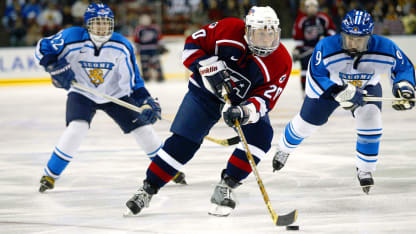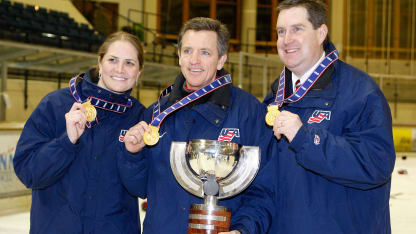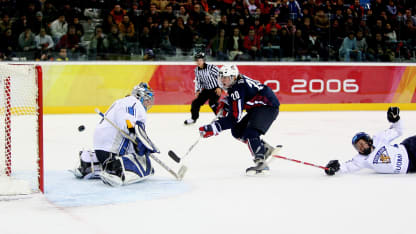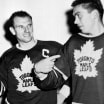When A.J. Mleczko thinks of Katie King Crowley, they don't think of that crowning achievement, the gold medal at the 1998 Nagano Olympics and the kickoff for everything that would come later for the United States women's hockey team.
Or, at least, that's not first.
First comes the bronze-medal game eight years later at the 2006 Torino Olympics.
"What I remember [about] watching that bronze-medal game is she played out of her mind," Mleczko said.
It was King Crowley's final international game and no one -- least of all the team itself -- believed the United States would be playing for bronze. They were supposed to be playing for gold like in the previous two Olympics, the one they won and the other they lost (Salt Lake City in 2002), each against Canada.
But the U.S. stumbled in the shootout against Sweden in the 2006 semifinal and, though the disappointment was palpable, King Crowley wasn't going to let that stop her.
She scored a hat trick. The U.S. defeated Finland 4-0. Mleczko was broadcasting the game.
"She was such a leader the way she carried herself out there," said Mleczko, King Crowley's teammate in the first two Olympics, "You don't want to go into that game and not go home with a medal at all and that was going to be very easy for them to do, based on their mentality.
"You could just feel how she dragged everybody into that fight."
It was a shining moment in the career of King Crowley, who will be inducted into the U.S. Hockey Hall of Fame on Wednesday in Boston, not far from where she grew up in Salem, New Hampshire, and where she now works, as the coach of the Boston College women's hockey team since 2007.
It's an honor that former coach and 2017 U.S. Hall of Fame inductee Ben Smith called "long overdue."




















